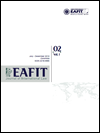The Process of Institutionalization of the Association of Southeast Asian Nations: Evolution and Prospects for the future in East Asian Regionalism
Main Article Content
Keywords
ASEAN, regionalism, ASEAN Charter, ASEAN Community.
Resumen
This paper aims to trace briefly the process of institutionalization of the Association of Southeast Asian Nations (ASEAN) since its creation in 1967 as a response to the increasing regional trade within Southeast Asia and this region with the rest of the world. The process of regionalism in the region has been constrained by different interests of the country members and the rule of consensus in every decision making process inside the organization. Real achievements came to the scenario mostly, after the Asian financial crisis in 1997, when the regional institutions failed to respond properly and their role was highly questioned. To regain its position and influence, ASEAN has become the first multilateral mechanism to regulate economic and political relations in Asia and the first to establish a Free Trade Area among its members and other countries outside the agreement. The ASEAN charter now in force will serve to guarantee the accomplishment of the ASEAN Vision 2020 that will make ASEAN one of the strongest partnerships in Asia and in the rest of the world. Some scholars affirm that further institutionalization of ASEAN can lead to a deeper process of regionalism in Asia, especially with northeast Asia (China, Japan and South Korea), countries with historical rivalries and distinctive approaches towards regionalism.
Descargas
Los datos de descargas todavía no están disponibles.

